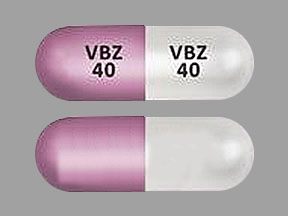Ingrezza Disease Interactions
There are 4 disease interactions with Ingrezza (valbenazine).
Valbenazine (applies to Ingrezza) hepatic dysfunction
Major Potential Hazard, Moderate plausibility. Applicable conditions: Liver Disease
Valbenazine is extensively metabolized after oral administration by the liver. Dosage adjustment of valbenazine 40 mg once daily is recommended for patients with moderate or severe hepatic impairment (Child-Pugh score 7 to 15). Close monitoring of hepatic function is recommended.
Valbenazine (applies to Ingrezza) QT prolongation
Major Potential Hazard, Moderate plausibility. Applicable conditions: Arrhythmias
Valbenazine may prolong the QT interval, although the degree of QT prolongation is not clinically significant at concentrations expected with recommended dosing. The use of valbenazine should be avoided in patients with congenital long QT syndrome or with arrhythmias associated with a prolonged QT interval. For patients at increased risk of a prolonged QT interval, it is recommended to assess the QT interval before increasing the dosage.
Valbenazine (applies to Ingrezza) renal dysfunction
Major Potential Hazard, Moderate plausibility.
The use of valbenazine is not recommended in patients with severe renal impairment (creatinine clearance <30 mL/min). Dosage adjustment is not necessary for patients with mild to moderate renal impairment (creatinine clearance 30 to 90 mL/min).
VMAT2 inhibitors (applies to Ingrezza) parkinson
Moderate Potential Hazard, Moderate plausibility. Applicable conditions: Parkinsonism
The use of vesicular monoamine transporter 2 (VMAT2) inhibitor, such as valbenazine and deutetrabenazine may cause parkinsonism in patients with tardive dyskinesia. These agents should be used with caution in patients with parkinson disease or those presenting with parkinson-like symptoms such as, falls, gait disturbances, tremor, drooling and hypokinesia. It is recommended to reduce the dose or to discontinue treatment in patients who develop clinically significant parkinson-like signs or symptoms while on treatment with these agents.
Switch to professional interaction data
Ingrezza drug interactions
There are 513 drug interactions with Ingrezza (valbenazine).
Ingrezza alcohol/food interactions
There is 1 alcohol/food interaction with Ingrezza (valbenazine).
More about Ingrezza (valbenazine)
- Ingrezza consumer information
- Check interactions
- Compare alternatives
- Pricing & coupons
- Reviews (20)
- Drug images
- Side effects
- Dosage information
- Patient tips
- During pregnancy
- Generic availability
- FDA approval history
- Drug class: VMAT2 inhibitors
- Breastfeeding
- En español
Related treatment guides
Drug Interaction Classification
| Highly clinically significant. Avoid combinations; the risk of the interaction outweighs the benefit. | |
| Moderately clinically significant. Usually avoid combinations; use it only under special circumstances. | |
| Minimally clinically significant. Minimize risk; assess risk and consider an alternative drug, take steps to circumvent the interaction risk and/or institute a monitoring plan. | |
| No interaction information available. |
See also:
Further information
Always consult your healthcare provider to ensure the information displayed on this page applies to your personal circumstances.


